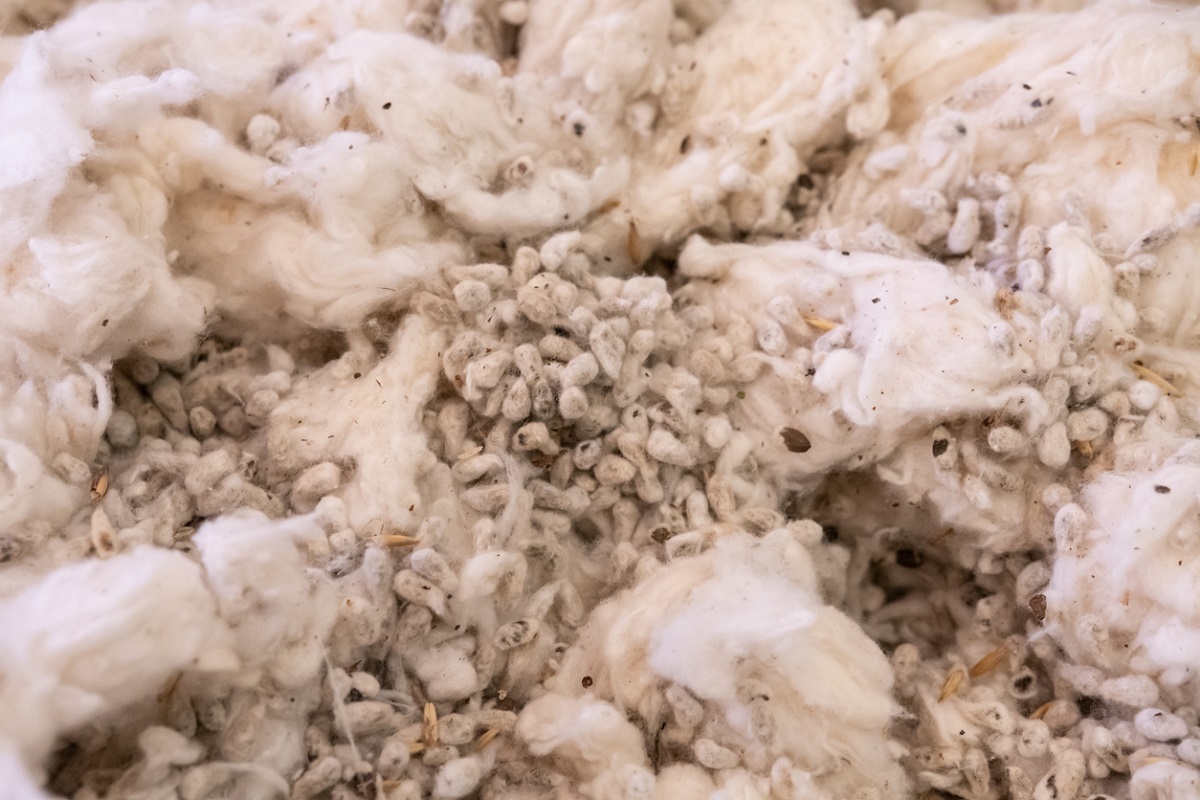
Selective Gene Silencing Leads to Ultra-low Gossypol Cottonseed
February 12, 2020| |
Scientist Keerti Rathore and team from Texas A&M University used selective RNA interference to selectively silence the gene δ-cadinene synthase to reduce gossypol concentration in the seed by 97%, without lowering the gossypol in other parts of the cotton plant where it is needed as defense against insects and diseases. The results are published in Critical Reviews in Plant Sciences.
The global output of cottonseed contains ∼10.8 trillion grams of protein that can meet the basic protein requirements of ∼590 million people at a rate of 50 g/day. However, gossypol, which is a toxic substance in seed glands, makes the cottonseed unsafe as food or feed. Thus, the researchers used selective RNAi to produce ultra-low gossypol cottonseed (ULGCS), which is safe as food or feed. Field trials held in multiple states and several years validated the stability and heritability of the trait without any effect on agronomic performance. Thus, global adoption of ULGCS event, TAM66274, could significantly enhance nutrition security and increase farmers' income without additional land and inputs, making cotton farming more sustainable.
TAM66274 was deregulated by USDA- Animal and Plant Health Inspection Service in October 2018 and Food and Drug Administration concluded its food safety consultation in September 2019.
Download the open access article in Critical Reviews in Plant Sciences.
| |
You might also like:
- USDA Approves GE Low-Gossypol Cotton
- FDA Approves Texas A&M's Ultra-Low Gossypol Cotton for Human and Animal Consumption
- Event Name: TAM66274
Biotech Updates is a weekly newsletter of ISAAA, a not-for-profit organization. It is distributed for free to over 22,000 subscribers worldwide to inform them about the key developments in biosciences, especially in biotechnology. Your support will help us in our mission to feed the world with knowledge. You can help by donating as little as $10.
-
See more articles:
-
News from Around the World
- Redundant Food Labels Affect Consumers' Willingness to Pay
- Genomes of Basmati Rice Sequenced
- Scientists Unravel Mystery of Photosynthesis
- Innovation Study Demonstrates Financial Benefits of HT Canola in Canada
- Colombia Benefits Economically and Environmentally from 15 Years of Planting GM Crops
- Australian OGTR Seeks Comment on GM Blue Carnations
- Scientists Discover Gene that Improves Yield and Fertilizer Use Efficiency of Rice
-
Research Highlights
- Selective Gene Silencing Leads to Ultra-low Gossypol Cottonseed
- Golden Rice is Safe, Studies Show
-
Plant
- Enzyme Engineering Boosts Super-precise CRISPR Tool
-
Read the latest: - Biotech Updates (December 17, 2025)
- Gene Editing Supplement (December 17, 2025)
- Gene Drive Supplement (February 22, 2023)
-
Subscribe to BU: - Share
- Tweet

